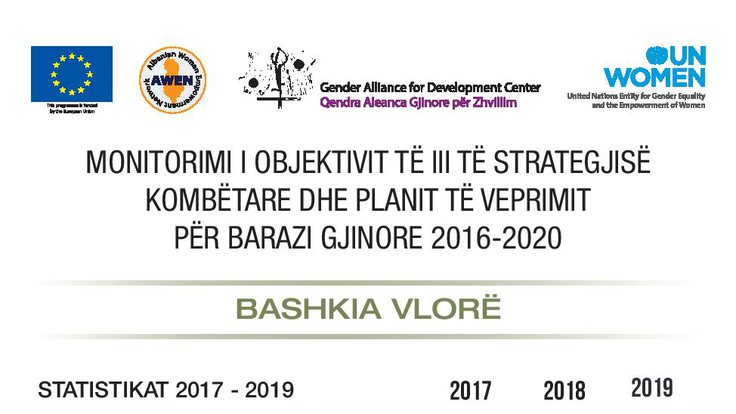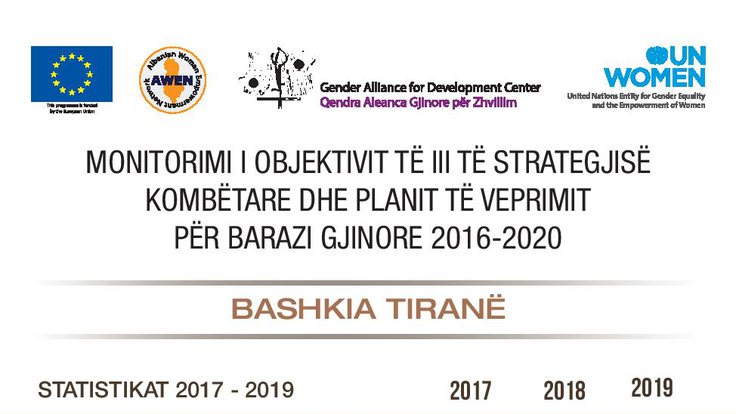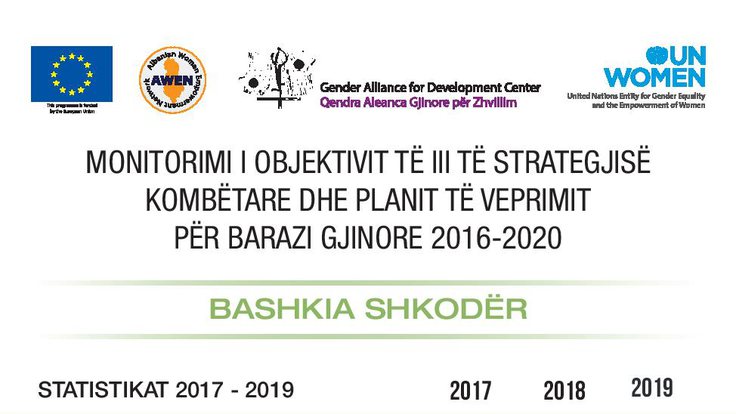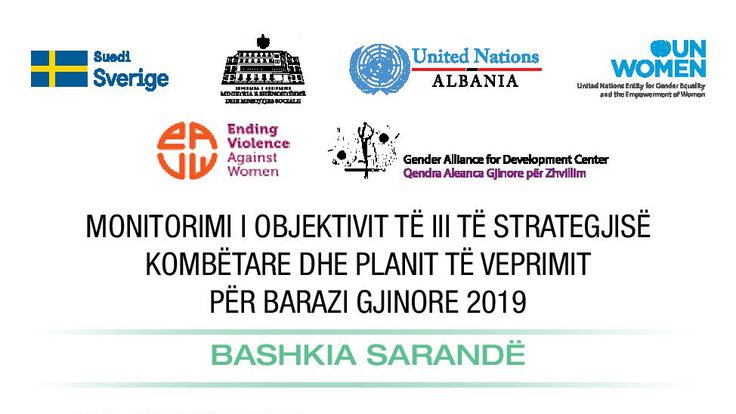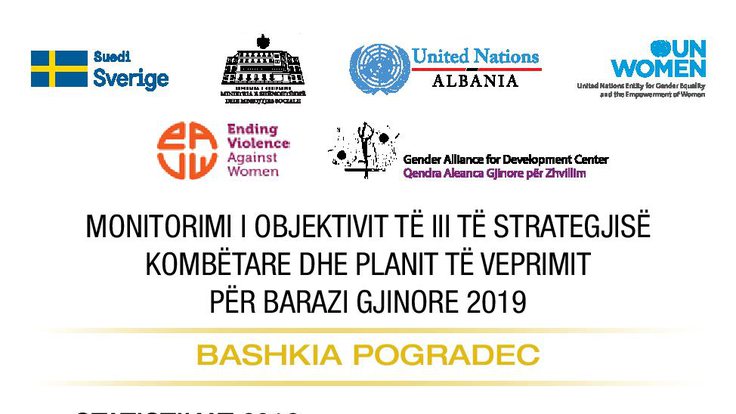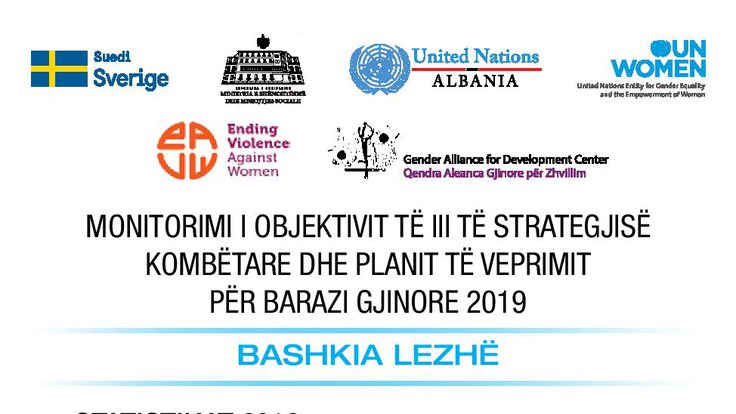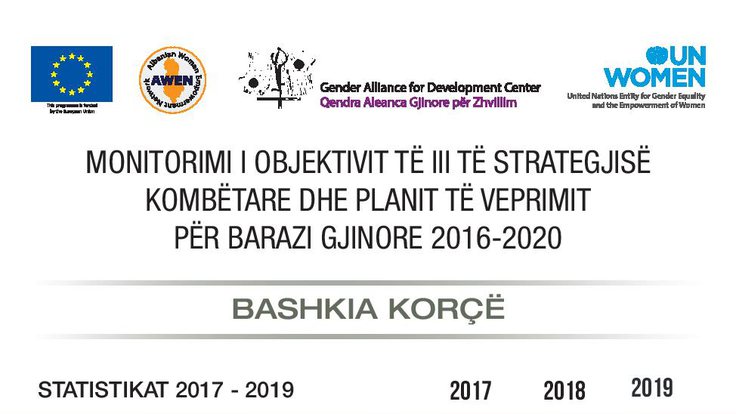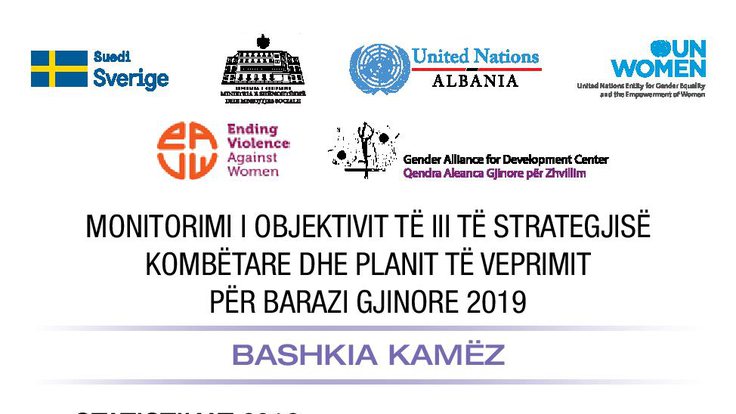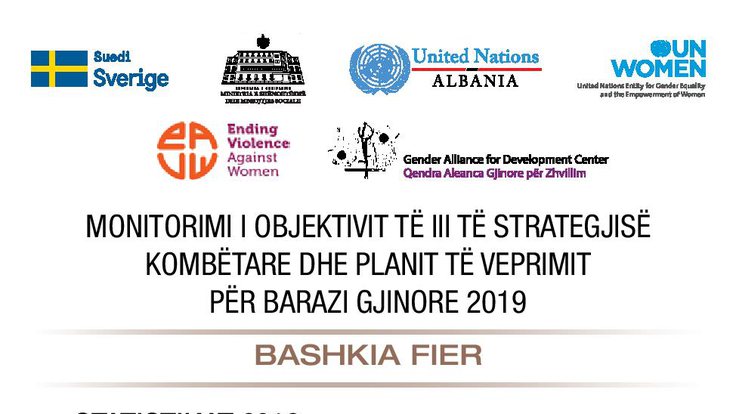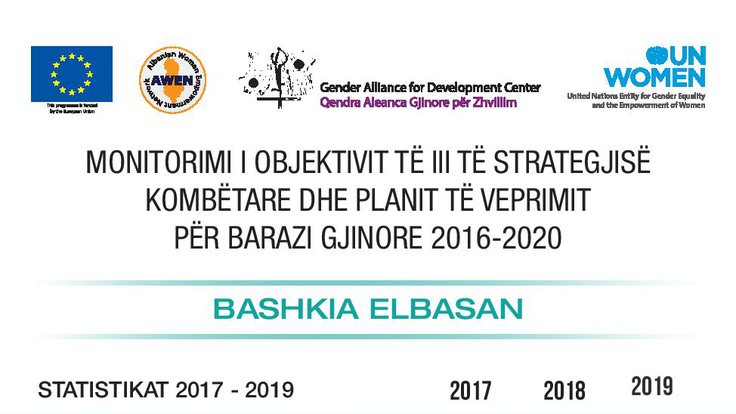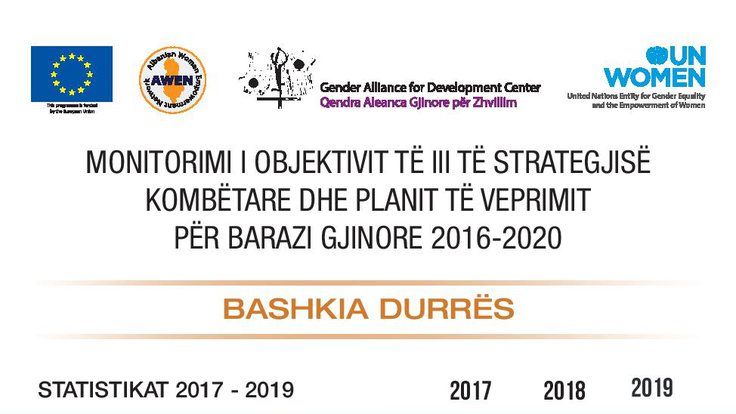Projects
Building CSO Capacities to Monitor Gender-Based and Domestic Violence Activities in the National Gender Equality Strategy 2016-2020
It is needed Organized Responsible Response and Strong Laws to Fight Domestic Abuse
2019 was the third year that Gender Alliance for Development Centre, monitor the functioning of the referral mechanisms in 11 municipalities of Albania, in the framework of the project: “Building capacities of CSOs to monitor the implementation of activities related to reduction of gender-based violence and domestic violence of the National Strategy and Action Plan on Gender Equality 2016-2020 (NSGE 216-2020), supported by UN Women Albania, under the Regional Program “Ending Violence against Women: Implementing Norms, Changing Minds”. The main focus is to hold accountable the members of the referral mechanisms and monitor the gaps in technical and financial resources of these group of professionals responsible for coordinated response against domestic abuse in Albania. This project is implemented in collaboration with 11 local women’s rights CSOs, some of them part of Albanian Women’s Empowerment Network. We have prepared annual monitoring reports for each municipality and infographics which demonstrate the findings and recommendations. In addition, the findings and recommendations have been used for lobbying and advocacy activities with governmental and parliamentary structures, as well as for raising the awareness of girls and women to break the chains of violence and report. GADC is continuing the monitoring of referral mechanism response against domestic abuse during the outbreak of COVID-19, that trapped girls and women in their homes with their abusers, isolated from the people and the resources that could help them. In Albania the rate of women suffering from domestic abuse is relatively high with 1 out of 2 or 52.9% of women age 18-74 ‘ever’ experienced one or more of the five different types of violence during their lifetime.[1] In May 2020, GADC will produce a monitoring report of the coordinated response from the referral mechanisms about the domestic abuse situation during the mandatory lockdown of COVID-19.
The project "Building capacities of CSOs to monitor the implementation of activities related to reduction of gender-based violence and domestic violence of the National Strategy and Action Plan on Gender Equality 2016-2020" (NSGE 2016-2020) regarding the reduction of gender-based violence and domestic violence was implemented for three consecutive years from 2017 - 2019. In Albania the project was implemented by the Gender Alliance for Development Center (GADC) and Albanian Women's Empowerment Network (AWEN) within the regional program “Ending Violence against Women: Implementing Norms, Changing Minds”, implemented by UN Women with the financial support of the European Commission. 6 were the Coordinated Referral Mechanisms (CRM) involved in GADC monitoring and other local organizations part of the AWEN network. Municipalities of Tirana, Shkodra, Korca, Elbasan, Vlora and Durres.
The central level monitoring process was monitored by GADC and AWEN through the collection of official data regarding the implementation of the activities of the Action Plan 2016-2020 by all responsible institutions, while the activities at the local level were monitored by local organizations.
After a 3-year monitoring process, two main achievements were made:
• The organizations involved already have the necessary capacities to monitor the implementation of the 3rd Objective of the National Strategy and Action Plan for Gender Equality 2016-2020;
• Organizations carried out advocacy processes for this strategy, using the findings and recommendations of monitoring processes over the years.
The data collected by the monitors were analyzed and based on this respective analysis for the six municipalities annual reports were drafted with the relevant findings and recommendations. These reports are presented annually to the municipalities in roundtables followed by advocacy meetings with decision-making bodies.
At the beginning of the monitoring according to the results of 2017, many of the municipalities had problems with their Referral Mechanisms, missing coordination between members, low participation in meetings of Interdisciplinary Technical Groups (ITG) from many of the representatives of institutions part of the mechanisms, low number of violence cases treated by mechanism etc. But since the first report of monitoring of the first year and frequent meetings, the approach towards the technical group and the local coordinator by many of the members of the mechanisms was improved by having an increase year after year of ITG meetings, handled cases or the request for further training of relevant staff to improve work.
Three essential issues for a better functioning of the Coordinated Referral Mechanisms continue to be problematic.
- Municipalities in general and municipalities under monitoring in particular do not have budgets allocated for community awareness to not accept gender-based and domestic violence;
- Many municipalities do not yet have emergency shelters;
- Frequent change of local coordinators;
- Very rare meetings of the Steering Committees of these mechanisms.
- Lack of gender-based data of many statistics especially by the court.
GADC continues its work in order to provide its assistance and expertise in improving the functioning of referral mechanisms. Numerous have been the trainings that the organization has provided not only for local coordinators of these 6 municipalities but also for other municipalities.
GADC
Research and Papers






